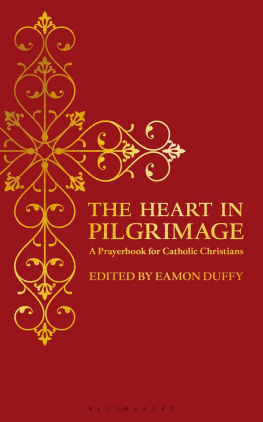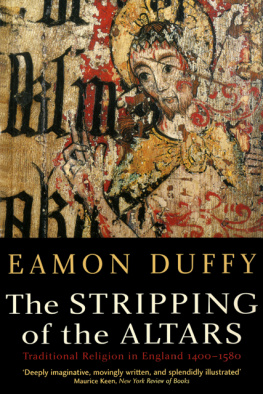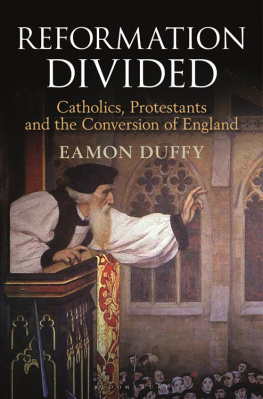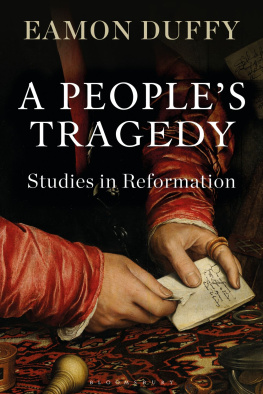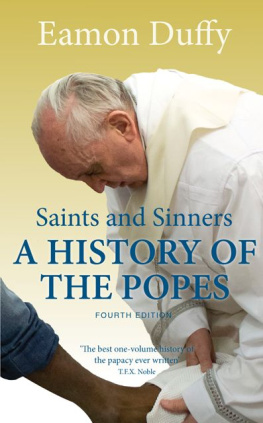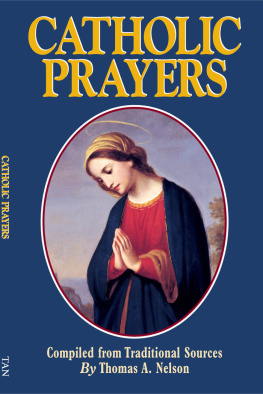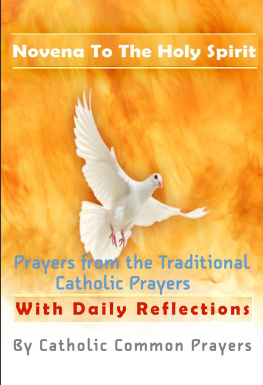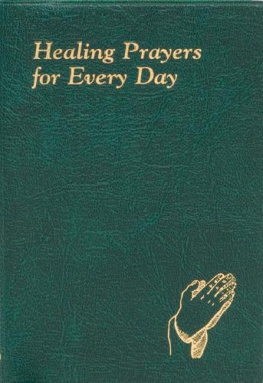

By the Right Reverend and Right Honourable the Lord Williams of Oystermouth One of the least helpful things in the history of Christianity is the way in which the word Catholic has been turned into another tribal badge. The most important definitions of the word in the early Church stress that calling the Church Catholic is a matter of grasping that it teaches the whole truth in a way that involves the whole person and is addressed to the whole of humanity. And that immediately gives us a clue about what it is to pray as a Catholic Christian. Our prayer must reflect the wholeness of Christian teaching it must in some way express the central truths of Gods threefold life as Father, Son and Spirit, the unique event in which the eternal Son lives a human life and dies a human death, the way in which his rising from death opens up the life of the new creation, in which we are shaped by the Spirit into the likeness of Christ, in the praying and loving company of all who have been transformed in this way, beginning with the Lords Mother, who first put her trust in the Word made flesh. Our prayer must involve the whole of our own being it must be worked out in disciplines of life, disciplines that make a difference to us as bodily beings, not only as creatures who have ideas and aspirations, and it must let us confront and engage with the whole of our emotional life, so that we are not afraid or ashamed to bring to God the fear or the doubt or the anger we may be feeling and expose it to his grace. And then our prayer must involve us in an awareness of the entire human race, its needs and hopes and God-given possibilities; it must keep our hearts open to all, involving us in the priestly intercession of Christ.
Praying in this context is praying the prayer of the Church. In public worship it is these themes that shape the Daily Office and the Eucharist, making them above all the prayer of the whole Body of Christ. In our personal growth in prayer, we need to be aware of how the same themes are at work, and for that we need to have access to a wide range of material that is informed by the liturgical tradition and by the work and thought and holy living of those who have grown to maturity within that tradition. In this superb collection, Eamon Duffy has drawn together a wealth of resource from such material, material that brings alive the great governing patterns of Christian discipleship and sanctity. He makes extensive use of the resources of the Western Catholic world, with generous acknowledgement of the witness of those who have lived and died outside the communion of the Roman Church; but he also introduces us to some of the riches of the patristic and Eastern legacy. Rowan Williams
By Fr Timothy Radcliffe OP A story is told, probably apocryphal, of the community of St Dominics Priory singing Vespers during a bombing raid on London during the Second World War.
Rowan WilliamsBy Fr Timothy Radcliffe OP A story is told, probably apocryphal, of the community of St Dominics Priory singing Vespers during a bombing raid on London during the Second World War.
As the bombs came closer the Prior is supposed to have shouted out: Stop Vespers, and lets start praying. It is commonly assumed that authentic prayer is spontaneous and individual, and that there is something artificial and insincere about reciting prayers composed by other people. But even our most spontaneous words are marked by what we have heard and read. When we try to tell someone that we love them, our words will echo the novels that we have read, the latest films that we have seen, the popular songs of our time and the words of love spoken in our families. If we listen to those who speak well, with nuance and sensitivity, we gradually discover our own voice. Praying is talking and listening to God as to a friend.
The saints are Gods close friends who can teach us how to do so well. The history of salvation is Gods never-ending conversation with humanity, slowly forming us to take part in the eternal, loving conversation which is the life of the Triune God. God addresses to us a word of friendship from which sometimes we flee, as when Adam hides when he hears God calling him, Where are you? (Genesis 3:9). Others respond to the calling of their names, like Abraham and Moses, and reply: Here I am! This conversation comes to its climax when the Word becomes flesh in a man of friendship and conversation. He debates with Nicodemus in the night and argues with the Samaritan woman at the well. He talked with the man born blind, while other people only talked about him.
He even talked with Pontius Pilate, his judge, until Pilate ended the conversation, and the silence of death had the victory for a while. And then the Word rises from the grave and addresses Mary Magdalene in the garden, and the disciples on the seashore, and us today. The prayers in this wonderful book are the words of people who dared to enter into conversation with God and accept his friendship. It is a Catholic book in that it invites us to belong in a vast community, which spans the centuries, from psalmists until today, and which transcends all national boundaries, accepting the gifts of Western and Eastern Christianity. These prayers teach us the courage and honesty of true friendship, and bring to word desires, hopes and fears of which we may have been only inchoately aware. Their prayers help us to find our own voice in response to Gods word to us.
I flew home from Jerusalem to be with my father when he died. On his last day, his wife and six children were gathered around the bed. The only prayer book that I had was my travel-battered breviary, and so we passed it around, each slowly reading a psalm. These are perhaps the oldest prayers in this book. They shout out raw passions anger, resentment, distress, confusion faced with suffering and also joy and exultation with an honesty that might alarm reserved English people! They give legitimacy to emotions which we may be nervous to admit, but which we need to bring to word. We are released from the solitude of suffering by reciting the words which have been part of the prayers of the people of God for millennia.
The psalms are hopeful prayers. Every psalm, with one exception, moves towards praise. It gives word to our doubts and fears, and carries us onwards towards joy, like the tide sweeping the surfer onto the beach. When we pray, we may wonder whether there is any point. Does God hear? Are we just despatching messages into the dark, like a sinking ship sending out SOS signals to which no one responds? The prayers which we find in this book give us the confidence to trust in Gods quiet presence. Cardinal Hume was asked in an interview What do you feel when you pray? He replied: Oh I just keep plugging away.
At its best its like being in a dark room with someone you love. You cant see them, but you know theyre there. Prayer is not our attempt to make contact with God but a sign of our confidence, fragile sometimes, that God is already present, and has always been present, awaiting our invitation to come and be at home in us: Behold, I stand at the door and knock; if anyone hears my voice and opens the door, I will come in to him and eat with him, and he with me. (Revelation 3:20). One reason why I find prayer difficult is because I have no clear idea of what is going on. Simon Tugwell OP argues that of course we do not understand what happens when we pray, because it is not something that we do.
Next page
